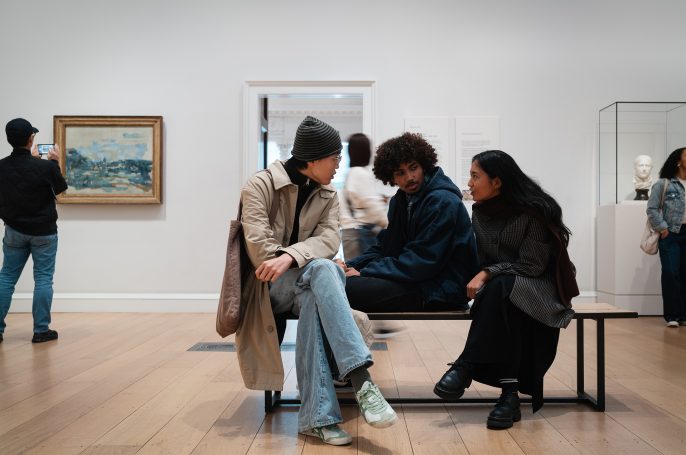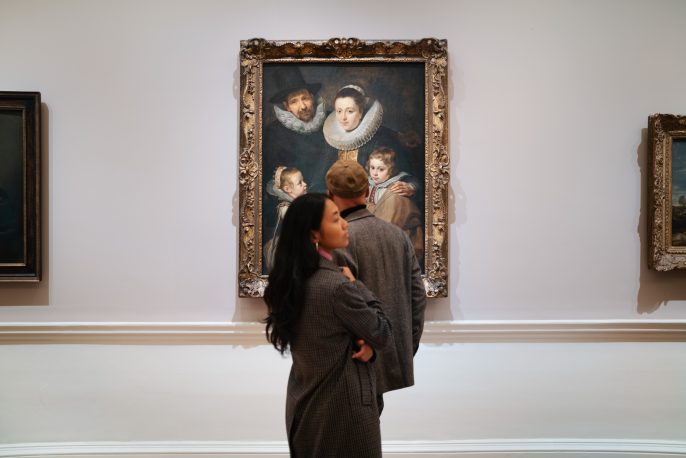The Courtauld Institute of Art
Online from 11th November 2020
Co-edited by Sarah Wilson, Professor of Modern and Contemporary Art and Harry Woodlock, (MA2017) Independent Curator and Editor
Contributors: Luc Boltanski, Arnaud Esquerre, Ed Fornieles, Rózsa Farkas, Byung-Chul Han, Lydia Ourahmane, Isabell Lorey, Sarah Wilson, Marianna Simnett, Franco “Bifo” Berardi and Harry Woodlock.

In 1992 the World Health Organisation published its tenth revision of the International Statistical Classification of Diseases. Under the diagnostic code for burnout, a ‘state of vital exhaustion’ was recorded for the first time. This term sought to outline an end-state, characterised by acute stress, anxiety and depression, of the individual life that had been rendered unliveable. With some prescience, it has come to capture an experience of increasing ubiquity in the UK today, one that can be located within the emerging public discourse that is often referred to as the ‘mental health crisis’.
A little over a decade earlier, Margaret Thatcher and her Conservative government had begun exercising a new form of political ideology that sought to place free market capitalism at the very centre of British life. Under the premise that economic prosperity equated with individual wellbeing, large swathes of trade and industry, then state owned, were transformed through market force and a new spirit of competitive individualism. Denationalisation, aided as it was through deregulation in the City of London, would revitalise the private sector and activate an exponential growth of the British economy.
With increasing vigour, this idea would come to saturate political thought on both the right and left, reshaping social policy in government from Tony Blair’s New Labour through to the current Conservative leadership. In time, the most basic conditions of human existence, from housing and education to labour and the environment, would become subject to the same logic, and subsequent volatility, of free market capitalism. Today, precarious housing, zero-hour contracts and the climate emergency attend widespread loneliness, fear and anger throughout society.
What connections can be made between these phenomena? And how might this be explored within the discipline and discourses of art history and criticism? Vital Exhaustion: Late Capitalism and the Crisis of Pain is a new online initiative that seeks to examine the social, economic and political origins of the mental health crisis through the lens of contemporary visual culture. Through a multidisciplinary series of essays, artworks and conversations this project will aim to go beyond a symptom-led diagnosis so as to unlock the inherent political potential of the escalating crisis.
Enrichment: A Critique of Commodities, Luc Boltanski and Arnaud Esquerre, 2020
Render visible: on wellness and free markets with Ed Fornieles
Staying open: Rózsa Farkas on space in the reality of coronavirus
The Burnout Society, Byung-Chul Han, 2015
Live Call, Lydia Ourahmane, 2019
State of Insecurity: Government of the Precarious, Isabell Lorey, 2015
Faint with Light: Marianna Simnett in conversation with Sarah Wilson
Expiration: the last breath, Franco “Bifo” Berardi, 2018
A State of Vital Exhaustion, Harry Woodlock, 2020
Identity: Konstantin Zhukov
The editors would like to thank Luc Boltanski, Arnaud Esquerre, Rózsa Farkas, Ed Fornieles, Byung-Chul Han, Isabell Lorey, Lydia Ourahmane, Marianna Simnett and Franco “Bifo” Berardi for their contributions. Eve Hawkesworth at Polity Press, Bridget Kinsella, Abigail Schott-Rosenfeld and Stephanie Adams at Stanford University Press, Laure Schlink at Verso, Emily Palmer at Studio Simnett, Hedi El Kholti at Semiotext(e), Fern Insh, Grace Williams and Acatia Finbow at the Research Forum, Konstantin Zhukov, Tim Bowditch, Patrick Cash and Adrien Sina. This work would not have been possible without the support of public funding from Arts Council England.






